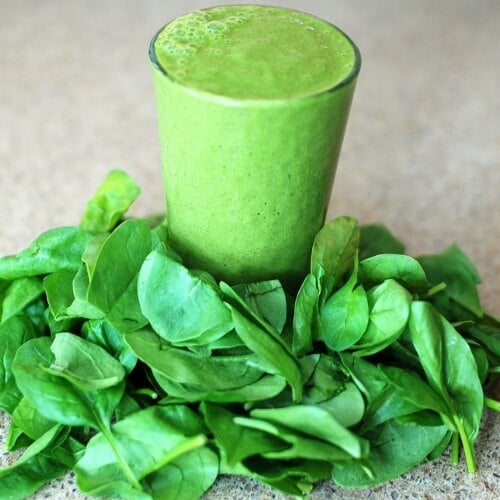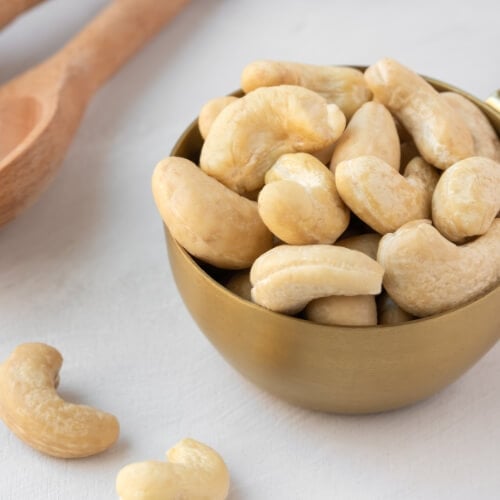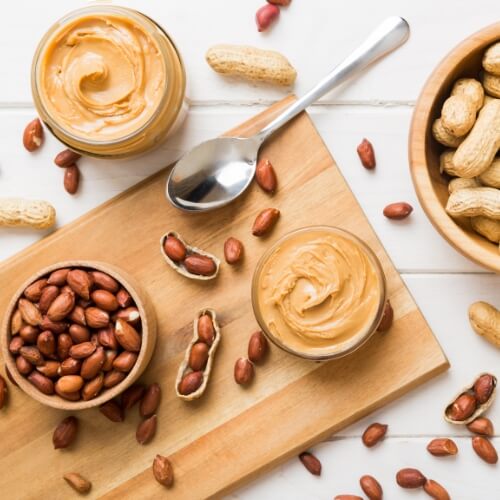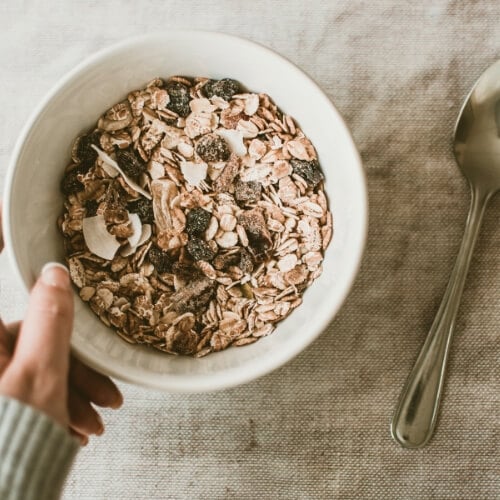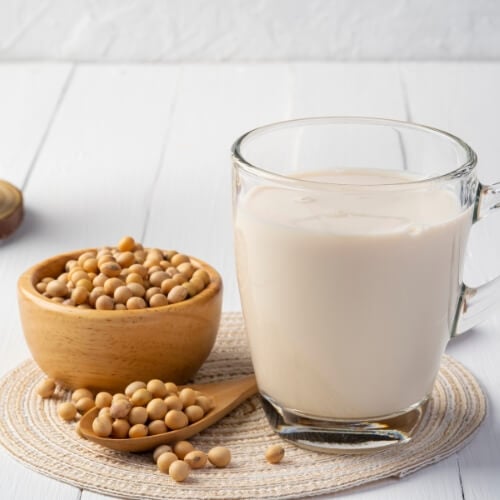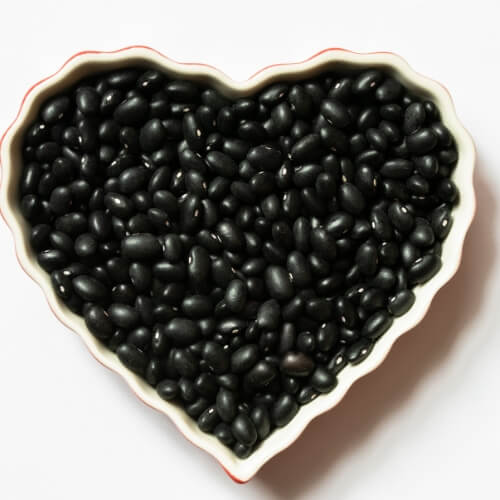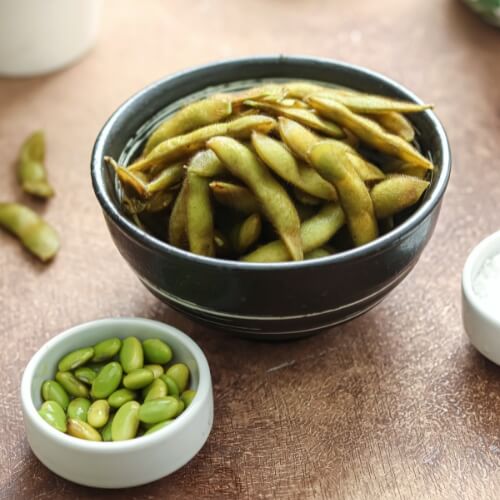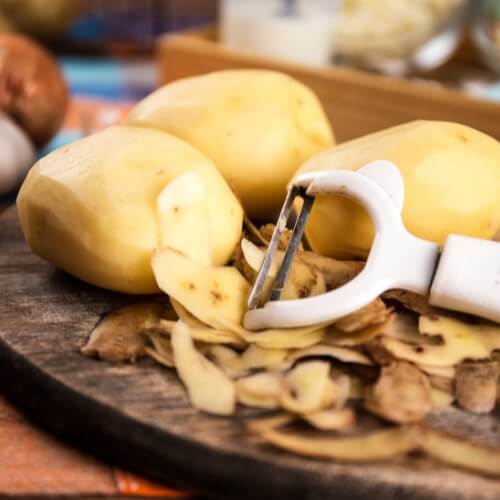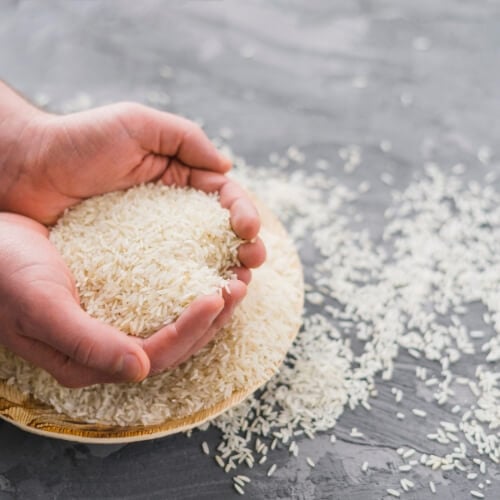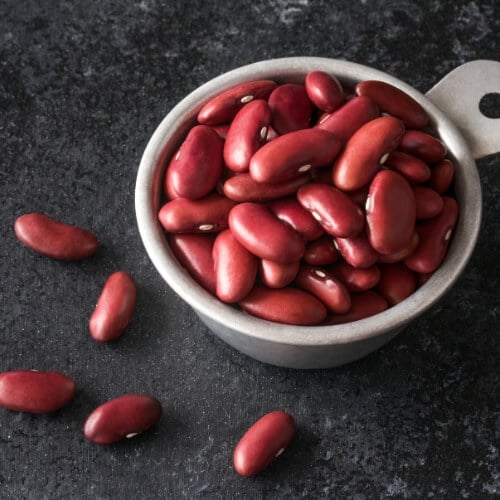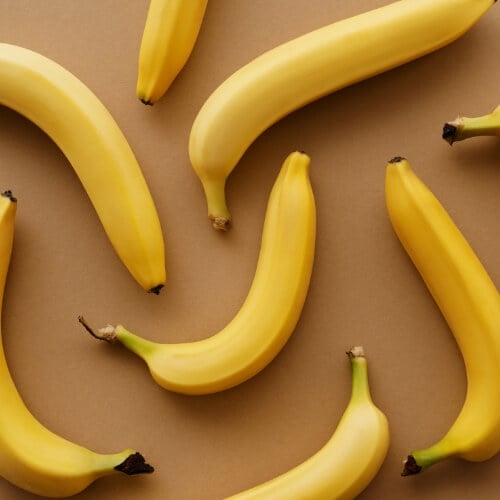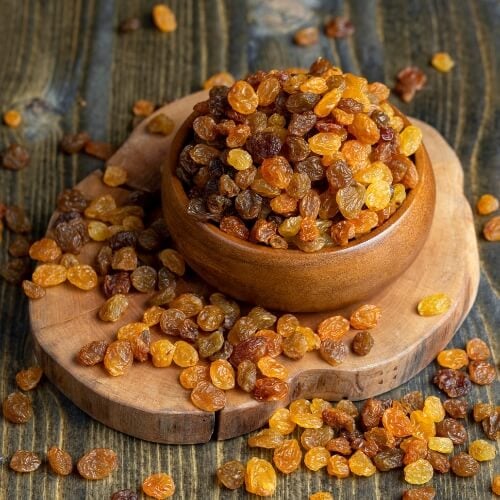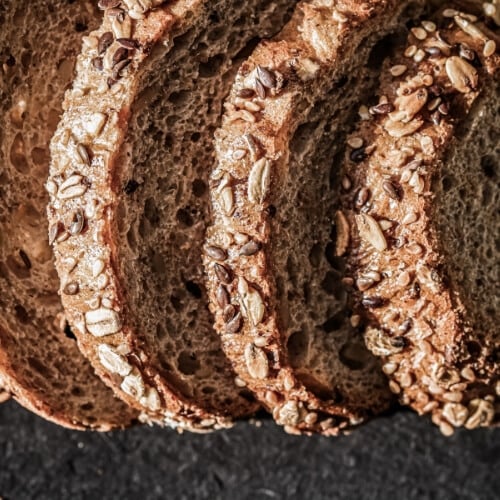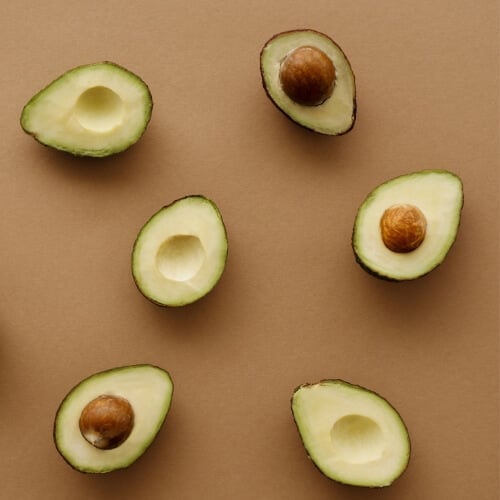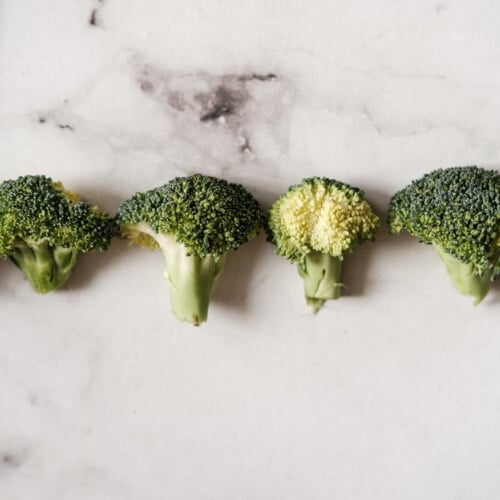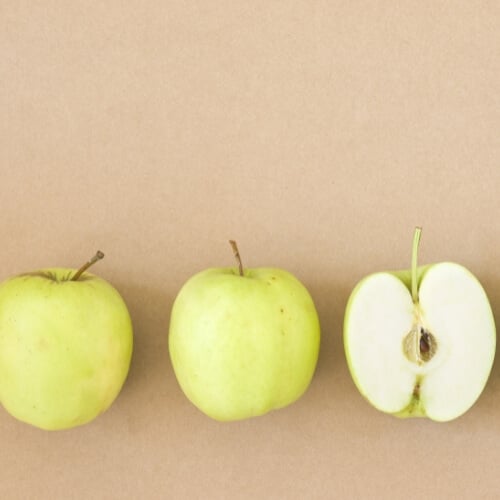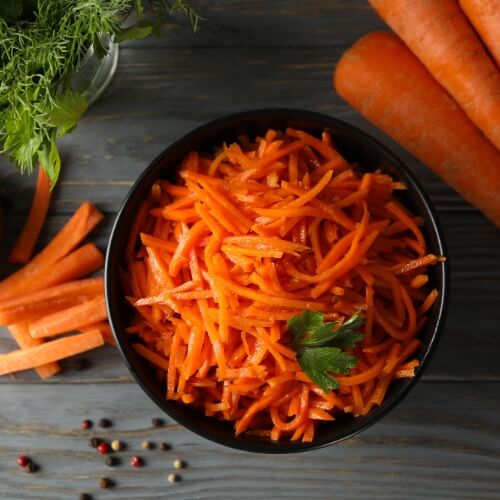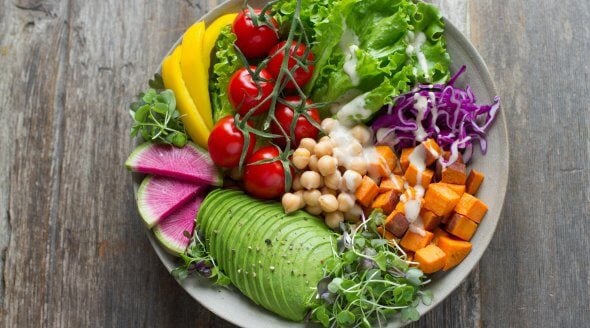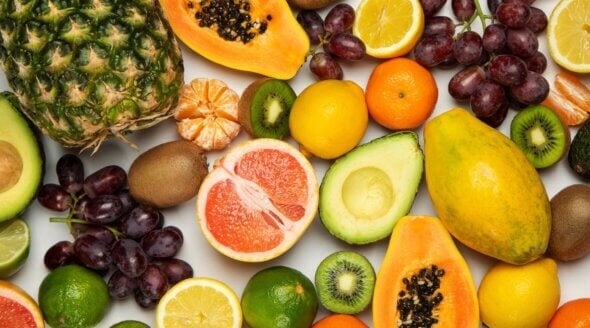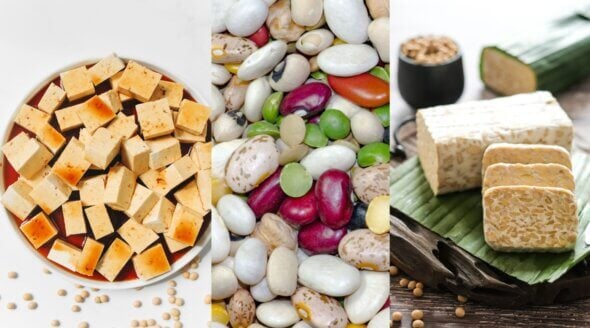20 Vegan Foods High in Magnesium
Which vegan foods are high in magnesium? Why do you need this mineral? Magnesium is a crucial nutrient that our bodies rely on to convert the delicious food we eat into energy. It’s also vital for maintaining strong bones and supporting overall health. Many vegan foods, particularly those rich in fibre, are excellent sources of magnesium. In this blog post, we’ll explore the top 20 vegan foods high in magnesium that you might want to include in your diet to ensure you’re getting enough of this essential mineral.
Roasted Pumpkin Seeds
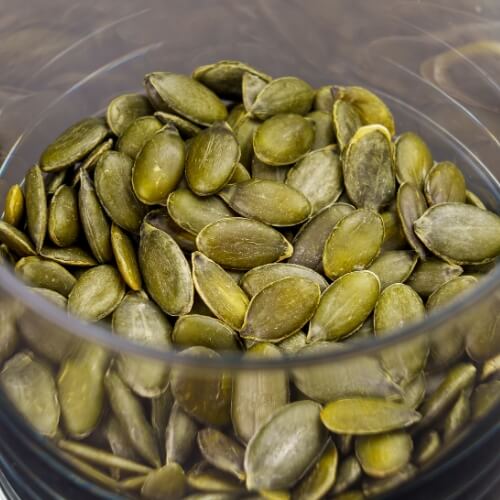
Pumkin seeds are some of the best vegan sources of magnesium! Add a handful of roasted pumpkin seeds to your salad or soup for a delicious crunch. These seeds are packed with antioxidants and healthy fats that support your immune system, enhance sexual health, and strengthen your bones. Just 28 grams of roasted pumpkin seeds provide approximately 74 milligrams of magnesium, which is around 25% of your daily needs.
Try PETA’s recipe: Maple-Cinnamon Granola
Chia Seeds
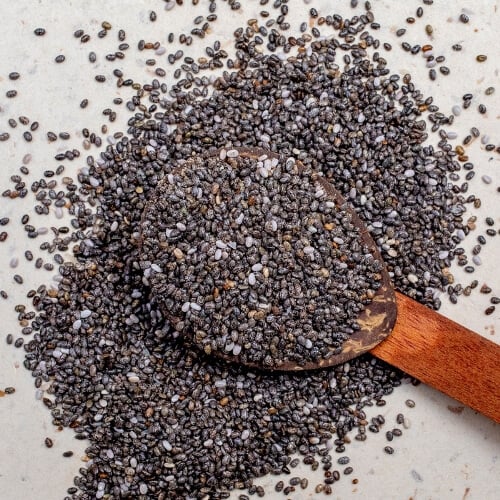
Mix chia seeds with almond or cashew milk and let them sit in the fridge overnight for a creamy, nutritious breakfast. Top it with your favourite berries for an extra burst of flavour and nutrients. Just 4 tablespoons of chia seeds provide half of your daily requirement of magnesium. This breakfast is also packed with fibre, protein, omega-3 fatty acids, antioxidants, and various vitamins and minerals.
Almonds
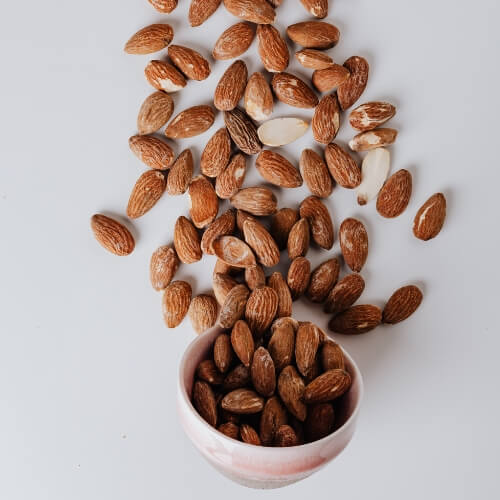
Almonds are a healthy source of antioxidants, vitamin E, protein, and fibre, and just a handful of almonds contains 18% of your daily recommended allowance of magnesium. Blend roasted almonds into smooth almond butter to spread on your morning toast or use them to make a delicious vegan caramel almond loaf. Whether enjoyed whole or in various recipes, almonds are a versatile and nutritious way to boost your magnesium intake.
Try PETA’s recipe: Vegan Caramel Almond Loaf
Spinach
Spinach is called a superfood for a reason: not only is it one of the best vegan sources of magnesium, it is also known to reduce the risk of developing cancer and is rich in iron. Just 1 cup of cooked spinach provides about 50% of your daily magnesium needs. Whether you enjoy it raw in a salad or cooked as a side dish, embracing your inner Popeye and including spinach in your diet is a smart choice for boosting your health.
Try PETA’s recipe: Red Thai Curry
Cashews
Enjoy cashews raw as a snack, add them to a curry, or make creamy cashew cheese. Just 28 grams of cashews provide about 28% of your daily magnesium requirement. They’re also rich in selenium, iron, zinc, folate, and vitamin E. Studies have found that daily consumption of cashews may improve cholesterol levels in people with type 2 diabetes and also help protect against memory loss.
Try PETA’s recipe: Tangy Spreadable Cashew Cheese
Peanuts or Peanut Butter
Are you looking for an excuse to eat more peanut butter? We have good news! When eaten as part of a balanced diet, peanuts and peanut butter offer many health benefits. Just 2 tablespoons of peanut butter contain around 57 milligrams of magnesium. Peanuts are also good sources of important nutrients such as protein, folate, and vitamins B3, B6, and E. Enjoy peanut butter on your morning porridge or toast, or mix a spoonful into a stew for lunch.
Try PETA’s recipe: Sudanese Sweet Potato, Spinach, and Peanut Stew
Fortified Breakfast Cereals and Shredded Wheat
Next time you shop for breakfast cereals, read the labels to see if they’re fortified with magnesium – many of the varieties available at supermarkets are! Getting more magnesium is as easy as kick-starting your day with a bowl of shredded wheat or other fortified cereals paired with soya milk.
Soya Milk
We love how versatile soya is! Not only is it an excellent vegan source of magnesium, it’s also rich in protein. Just 1 cup of soya milk provides about 37 milligrams of magnesium, which is around 12% of your daily needs. Have a splash of soya milk in your tea, enjoy it with your cereal, or make one of PETA’s favourite desserts.
Try PETA’s recipe: Dark Chocolate Raspberry Mousse
Black Beans
For an extra boost of magnesium, add black beans to a salad, use them in burgers, or make a hearty bean chilli! Just 1 cup of cooked black beans provides about 120 milligrams of magnesium – which is around 40% of your daily needs. They’re also a wonderful source of protein and fibre, making them a nutritious and versatile addition to any meal.
Try PETA’s recipe: Quinoa and Black Bean Burgers
Edamame
Add edamame beans to your noodles, or simply enjoy them as a starter. Just 1 cup of cooked edamame provides about 99 milligrams of magnesium, which is around 33% of your daily needs. And did you know that a cooked cup of edamame contains almost 32% more protein than two hard-boiled eggs? The best part is that they’re cruelty-free!
Try PETA’s recipe: Orange, Edamame, and Avocado Noodle Salad
Potatoes
Baked potatoes aren’t just the ultimate comfort food – they’re also a terrific vegan source of magnesium. A medium potato with the skin on provides about 48 milligrams of magnesium, which is around 12% of your daily needs. Top it with black bean chilli and spinach for the ultimate nutrient boost, or try this vegan shepherd’s pie recipe.
Try PETA’s recipe: Vegan Shepherd’s Pie
Brown or White Rice
Brown and white rice have many health benefits. A half-cup serving of cooked brown rice provides about 38 milligrams of magnesium, which is around 12% of your daily needs. White rice, while slightly lower in magnesium, still offers nutritional benefits.
Try PETA’s recipe: Frittata
Kidney Beans
Kidney beans are a fantastic addition to any vegan diet, offering a rich source of magnesium and other essential nutrients. Just 1 cup of cooked kidney beans provides about 74 milligrams of magnesium, which is around 25% of your daily needs. These beans are also packed with protein, fibre, iron, and potassium, making them a nutritional powerhouse. Whether you add them to salads, use them in vegan burgers, or make a hearty bean chilli, kidney beans are a versatile and delicious way to boost your magnesium intake.
Try PETA’s recipe: Vegan Haggis
Bananas
Fancy a quick and tasty snack that provides magnesium? One banana contains about 32 milligrams of the mineral, which is around 10% of your daily needs. Besides magnesium, bananas are rich in potassium, vitamin C, and dietary fibre. Enjoy them on their own, slice them over your morning cereal, bake banana bread, or blend them into a smoothie.
Try PETA’s recipe: Banana Bread with Cinnamon Sugar
Raisins
Raisins might be small, but they pack a powerful nutritional punch. Just half a cup of raisins provides about 23 milligrams of magnesium, which is around 8% of your daily needs. Add them to your porridge, use them in your baking, or even sprinkle them over a salad for a sweet and nutritious touch. Raisins are not only delicious but also rich in antioxidants and other essential nutrients, making them a great addition to any meal.
PETA’s recipe: Coronation Pasta Salad
Whole-Wheat Bread
Whole-wheat bread is a staple in many diets, and for good reason! It’s packed with essential nutrients. Just two slices of whole-wheat bread can provide around 49 milligrams of magnesium, which is about 19% of the recommended daily intake. Whole-wheat bread also offers a good dose of dietary fibre, B vitamins, and iron, making it a nutritious choice for any meal. Enjoy it toasted with avocado, as a base for a hearty toastie, or simply with a spread of your favourite nut butter.
Try PETA’s recipe: Vegan Sloppy Joe Cheese Toastie
Avocado
Avocados are often hailed as a superfood. A medium-size avocado contains about 58 milligrams of magnesium, which is roughly 19% of the recommended daily amount. Avocados are rich in healthy fats, potassium, and fibre. Mash them into guacamole, slice them onto toast, or blend them into a smoothie.
Try PETA’s recipe: Vegan Tuna and Avocado Toast with Rocket Salad
Broccoli
Your mum was right – it’s important to eat your greens. A cup of cooked broccoli provides about 33 milligrams of magnesium, which is around 10% of the recommended daily intake. Broccoli is also loaded with vitamins C and K, fibre, and antioxidants, making it a fantastic choice for overall health. Steam it, roast it, or add it to your favourite stir-fry.
Try PETA’s recipe: Peanut Butter and Sesame Noodles
Apple
An apple day …. You know the rest! This perfect healthy snack contains magnesium and a bunch of other crucial nutrients, including potassium and vitamins C and K. One medium apple has around 3% of the recommended daily intake of magnesium. Enjoy it raw, slice it into a salad, or bake it into a pie to share with friends.
Try PETA’s recipe: Tarte Aux Fruits Frais
Carrot
Next time you’re doing a grocery shop, don’t forget to pick up a pack of carrots. Dunk them in houmous, make a salad, or even bake a carrot cake for your magnesium boost. One cup of chopped carrot has around 5% of your recommended daily intake. Did you also know that just one large carrot can provide you with your daily target for vitamin A? Your eyes will thank you.
Try PETA’s recipe: Pad Thai Salad
Why Choose Vegan Sources of Magnesium?
Cows, chickens, pigs, and fish have feelings, thoughts, and personalities – just as we do. Yet the meat, egg, dairy, and fishing industries treat them like machines, subjecting them to immense cruelty. Did you know that pigs raised for meat spend their lives crammed into barren pens and may never see the sun or breathe fresh air? Were you aware that cows are separated from their calves shortly after giving birth?
You don’t need to eat an animal’s flesh, eggs, or secretions. In fact, we’re healthier if we don’t! A vegan diet has been proved to help you live longer. It also drastically improves your quality of life by helping you stay fitter and healthier and making you feel great – especially because what you’re eating isn’t causing any suffering.
Going vegan is easy. Try it for 30 days and we’ll send you tips and recipes to make your vegan journey a breeze:
Want More Vegan Goodness?
Now that you know which vegan foods are rich in magnesium, check out our other guides to learn more about vegan sources of protein, B12, and other nutrients:

